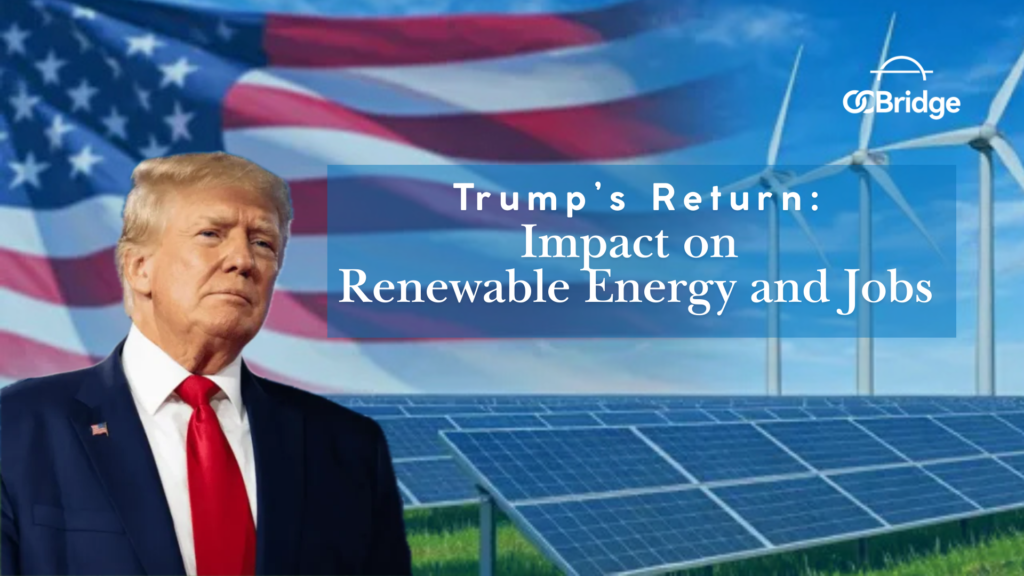Trump's Return: Impact on Renewable Energy and Jobs
Under President Trump, the administration is likely to prioritize fossil fuel production and scale back support for renewable energy initiatives. Trump has criticized policies like the Inflation Reduction Act, viewing them as economically harmful and detrimental to U.S. energy independence. Subsidies for renewable technologies such as solar, wind, and electric vehicles are expected to decrease. Instead, there will be a focus on expanding domestic oil, gas, and coal production to reduce energy prices and strengthen energy security.
This policy shift could slow growth in the renewable energy sector. Moreover, Chinese EV and battery companies could face increased challenges in the U.S. market due to tariffs, regulatory barriers, and reduced support for renewable energy. These factors would likely diminish their competitiveness in the U.S. In response, Chinese companies might mitigate impacts by relocating production, adjusting supply chains, or focusing on alternative markets—which could potentially bring more job opportunities to the U.S. workers.
Talent Shortages and Recruitment in Renewable Energy
Even with a potential slowdown, renewable energy will remain vital to the U.S. economy. It now makes up over 40% of the U.S. energy workforce, with more than 250,000 jobs added in 2023 alone. To meet global sustainability goals, the workforce will need to triple by 2030.
The specialized nature of renewable energy roles means companies must invest in workforce development to close the skills gap. With traditional energy sectors also competing for skilled workers, recruitment efforts will be crucial in securing top-tier talent.
Key Trends in Renewable Energy Recruitment
-
Talent Shortage: As the industry continues to grow, businesses must invest in training and education programs to develop a pipeline of skilled workers. Strategic partnerships with universities and technical institutes will be essential.
-
Rising Salaries and Benefits: Wage inflation is inevitable as demand for skilled workers in both traditional and renewable energy sectors rises. In addition to competitive compensation, offering benefits such as flexible work arrangements, career development programs, and improved job security will be critical to attracting and retaining top talent.
-
Purpose-Driven Work: With climate change and sustainability high on the agenda, renewable energy companies must emphasize the societal impact of their work to resonate with today’s purpose-driven job seekers.
-
Technological Innovation: With significant technological advances expected in areas such as energy storage, smart grids, and electric vehicles, companies must remain on the cutting edge. Staying ahead of these trends will be key to attracting specialized talent in the coming years.
Adapting Recruitment Strategics
Companies must emphasize the purpose-driven nature of work in renewable energy to attract professionals motivated by sustainability and climate action. Highlighting competitive pay, benefits, and the societal impact of their work can resonate with today’s job seekers.
Collaboration with specialized recruitment agencies will be essential. By partnering with agencies that understand the energy sector, companies can more effectively target and attract the skilled professionals needed to meet both immediate and long-term workforce demands.
Conclusion: Adapting to a Trump Administration’s Energy Policies
Under President Donald Trump, the renewable energy sector will likely face a more challenging environment, with a stronger emphasis on fossil fuel production and less government support for green technologies. This shift in policy will slow the pace of growth in renewable energy but will simultaneously drive demand for talent in more traditional energy sectors such as oil, gas, and coal. Companies will need to adapt their recruitment strategies to this new reality, focusing on attracting skilled professionals in the fossil fuel industry, where wages and benefits may rise as competition for talent intensifies.
At the same time, renewable energy companies will still need to focus on workforce development. Strategic partnerships with recruitment agencies will become increasingly vital to help businesses bridge the skills gap and continue attracting talent in a competitive job market. As technology evolves and energy demand remains high, the ability to adapt to shifting policies will determine which companies succeed in securing the talent they need to power the future of energy.
Partner with OCBridge to Navigate the Energy Landscape and Secure Top Talent for Your Business
At OCBridge, we are committed to helping companies navigate the complexities of the changing energy landscape. Whether adapting to policy shifts under a Trump administration or other changes, we’re here to help you secure the talent needed to drive your business forward.



